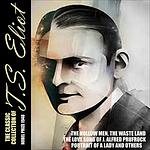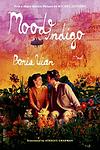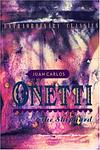The Greatest "Modernist, Fiction, Fictional Location" Books of All Time
Click to learn how this list is calculated.
This list represents a comprehensive and trusted collection of the greatest books. Developed through a specialized algorithm, it brings together 305 'best of' book lists to form a definitive guide to the world's most acclaimed books. For those interested in how these books are chosen, additional details can be found on the rankings page.
Genres
Modernist literature is a category of books that emerged in the early 20th century, characterized by a break from traditional literary forms and a focus on individual experience and perception. Modernist writers experimented with language, form, and structure, often using stream-of-consciousness narration and fragmented storytelling to convey the complexity and ambiguity of modern life. Themes of alienation, disillusionment, and the search for meaning are common in modernist literature, which reflects the cultural and social upheavals of the time. Overall, modernist literature is a challenging and thought-provoking genre that continues to influence contemporary literature and culture.
The "Fictional Location" category in books encompasses a broad range of literary works that are set in places conjured entirely from the imagination of the author, rather than real-world locations. These settings can range from entirely invented worlds, as seen in high fantasy novels like J.R.R. Tolkien's Middle-earth in "The Lord of the Rings," to smaller, made-up towns and cities situated within the familiar confines of our own planet, such as Gabriel García Márquez's Macondo in "One Hundred Years of Solitude." The allure of this category lies in the author's ability to craft unique environments that operate under their own set of rules, cultures, and histories, providing a rich backdrop for storytelling that can explore themes and narratives unconstrained by the limitations of reality. Whether these locations offer an escape to magical realms, dystopian futures, or alternate histories, books in the "Fictional Location" category invite readers to embark on journeys to places that exist only in the far reaches of the writer's creativity and the reader's imagination.
Countries
Date Range
Reading Statistics
Click the button below to see how many of these books you've read!
Download
If you're interested in downloading this list as a CSV file for use in a spreadsheet application, you can easily do so by clicking the button below. Please note that to ensure a manageable file size and faster download, the CSV will include details for only the first 500 books.
Download-
1. The Trial by Franz Kafka
The book revolves around a bank clerk who wakes one morning to find himself under arrest for an unspecified crime. Despite not being detained, he is subjected to the psychological torment of a bizarre and nightmarish judicial process. The story is a critique of bureaucracy, exploring themes of guilt, alienation and the inefficiency of the justice system.
The 39th Greatest Book of All Time -
2. Waiting for Godot by Samuel Beckett
"Waiting for Godot" is a play that explores themes of existentialism, despair, and the human condition through the story of two characters, Vladimir and Estragon, who wait endlessly for a man named Godot, who never arrives. While they wait, they engage in a variety of discussions and encounter three other characters. The play is characterized by its minimalistic setting and lack of a traditional plot, leaving much to interpretation.
The 96th Greatest Book of All Time -
3. The Metamorphosis by Franz Kafka
The book tells the story of a man who wakes up one morning to find himself transformed into a giant insect. His transformation causes him to lose his job and become ostracized from his family, who are horrified and repulsed by his new form. As he grapples with his new reality, he becomes increasingly isolated and starts to lose his sense of humanity. The book explores themes of alienation, guilt, and identity, and is a profound examination of the human condition.
The 123rd Greatest Book of All Time -
4. The Castle by Franz Kafka
This novel presents the story of a man who arrives in a village and struggles to gain access to the mysterious authorities who govern it from a castle. The protagonist, a surveyor, faces the constant frustration of his efforts to make contact with the elusive authorities and integrate into village society. The book explores themes of alienation, bureaucracy, the seemingly endless frustrations of man's attempts to stand against the system, and the futile pursuit of an unobtainable goal.
The 133rd Greatest Book of All Time -
5. Franz Kafka: The Complete Stories by Franz Kafka
This collection of stories offers a comprehensive look at the work of a renowned author, known for his surreal and often unsettling depictions of modern life. The stories explore themes of existential anxiety, guilt, and absurdity, often through narratives in which ordinary people face extraordinary, inexplicable circumstances. The collection showcases the author's unique style and his profound influence on 20th-century literature.
The 170th Greatest Book of All Time -
6. The Waste Land by T. S. Eliot
"The Waste Land" is a long poem that presents a bleak and despairing view of the world following the devastation of World War I. The poem is divided into five parts and uses a wide range of literary and cultural references, as well as multiple narrators, to depict a world in ruins. It explores themes of disillusionment, despair, and the decline of civilization, and is often considered a seminal work of modernist literature.
The 198th Greatest Book of All Time -
7. Molloy by Samuel Beckett
"Molloy" is a complex and enigmatic novel that follows the journey of its eponymous character, an elderly, disabled vagabond, who is tasked with finding and killing a certain person. The narrative is split into two parts: the first is told from Molloy's perspective as he navigates his way through a strange and often hostile world, while the second follows a detective named Moran who is assigned to find Molloy. The novel is renowned for its challenging narrative structure, its bleak and absurdist humor, and its profound exploration of themes such as identity, existence, and the human condition.
The 241st Greatest Book of All Time -
8. The Glass Bead Game by Hermann Hesse
Set in the 23rd century, the novel revolves around a highly intellectual game, the Glass Bead Game, which incorporates all fields of human and cosmic knowledge. The story follows the life of Joseph Knecht, a scholar who becomes a Magister Ludi (Master of the Game). The book explores his life and thoughts, including his relationships with others and his questioning of the values of his society. The narrative is a profound exploration of human life, knowledge, and spirituality.
The 450th Greatest Book of All Time -
9. The Third Policeman by Flann O'Brien
"The Third Policeman" is a darkly comedic and surreal novel about a nameless narrator who, after committing a murder to raise funds for his scholarly obsession with a bizarre pseudo-scientific theory, finds himself wandering in an eerie, nightmarish landscape. He encounters strange characters, including a pair of eccentric policemen who are obsessed with bicycles, and becomes embroiled in a series of increasingly absurd and ludicrous situations. The novel explores themes of existence, reality, and the nature of hell, with a twist ending that forces the reader to question everything they've read.
The 463rd Greatest Book of All Time -
10. The Unnamable by Samuel Beckett
"The Unnamable" is a complex, stream-of-consciousness narrative that explores themes of existence, identity, and the nature of reality. The protagonist, who lacks a clear identity, is trapped in a void and continually questions his existence and reality. As he grapples with his own consciousness, he attempts to tell his story, but constantly doubts and revises it, creating a cyclical, fragmented narrative. The novel is known for its challenging, abstract prose and its exploration of existentialist themes.
The 470th Greatest Book of All Time -
11. Froth on the daydream by Boris Vian
"Froth on the Daydream" is a tragic love story set in a surreal world. The protagonist is a wealthy young man who marries a woman he loves deeply. However, their bliss is short-lived when she develops a strange illness - a water lily growing in her lung. As her health deteriorates, so does their wealth and social standing, leading to a bleak and heartbreaking end. This novel is a poignant exploration of love, loss, and the harsh realities of life, all set within a fantastical and dreamlike landscape.
The 934th Greatest Book of All Time -
12. Endgame by Samuel Beckett
Endgame is a one-act play that follows the lives of Hamm, a blind and unable to stand man, and Clov, his servant who cannot sit. They live in a single room, with Hamm's legless parents residing in dustbins. The characters are trapped in a cyclical existence where they constantly argue and contemplate life, death, and their own existence. The play is characterized by its minimalistic setting and bleak outlook on life, reflecting themes of existentialism and the human condition.
The 1278th Greatest Book of All Time -
13. The Shipyard by Juan Carlos Onetti
"The Shipyard" is a novel set in a decaying Uruguayan port town, where the protagonist, a middle-aged man recently released from jail and suffering from tuberculosis, decides to take on the impossible task of reviving a defunct shipyard. The book explores themes of existentialism, disillusionment, and the struggle for meaning in a seemingly absurd world. Despite the bleak surroundings and circumstances, the protagonist remains hopeful and committed to his ambitions, providing a poignant commentary on the human spirit's resilience.
The 1317th Greatest Book of All Time -
14. The Hamlet by William Faulkner
"The Hamlet" is a complex narrative that explores the lives of the Snopes family, their rise to power, and their struggle with morality in a small southern town. The story is filled with themes of greed, manipulation, and the quest for power, as the Snopes family uses cunning and deceit to gain control over the town and its inhabitants. The novel is a vivid portrayal of the dark side of human nature and the destructive power of ambition.
The 1320th Greatest Book of All Time -
15. The Unconsoled by Kazuo Ishiguro
The book follows a renowned pianist who arrives in a Central European city to give a concert. However, his time there becomes increasingly surreal and disjointed as he is pulled in different directions by the demands of the locals, his own past, and his responsibilities. The narrative explores themes of memory, time, and self-delusion, creating a dream-like atmosphere that blurs the lines between reality and illusion.
The 1340th Greatest Book of All Time -
16. Watt by Samuel Beckett
The novel is a darkly comedic and absurdist exploration of the human condition. It follows the eponymous character, Watt, as he serves as a domestic servant in a bizarre, isolated household. Throughout the narrative, Watt struggles to make sense of his surroundings, the odd behavior of his master, and his own existence. The book is filled with philosophical musings, wordplay, and surreal humor, offering a unique and challenging reading experience.
The 1431st Greatest Book of All Time -
17. Crome Yellow by Aldous Huxley
"Crome Yellow" is a satirical novel set in an English country house, where a diverse group of guests gather for a summer holiday. The narrative explores various themes such as love, art, religion, and education through the conversations and interactions of the characters. The novel is known for its witty dialogue, social commentary, and for being an early example of the author's social criticism.
The 1562nd Greatest Book of All Time -
18. Tender Buttons by Gertrude Stein
"Tender Buttons" is an avant-garde collection of prose poetry, divided into three sections: "Objects," "Food," and "Rooms." The book is renowned for its experimental, stream-of-consciousness style, and its abstract, often nonsensical language. It challenges traditional narrative and linguistic structures, creating a unique exploration of everyday objects and experiences. The work is a significant contribution to modernist literature and a pioneering example of feminist writing.
The 1761st Greatest Book of All Time -
19. Krapp's Last Tape by Samuel Beckett
"Krapp's Last Tape" is a one-act play about an aging man who annually records a review of the past year of his life. On his 69th birthday, he listens to a tape from 30 years earlier, where he reflects on his life at 39, his lost love, and his isolation. The play explores themes of memory, regret, and the passing of time, with the protagonist's relationship with his younger self revealing a portrait of a man in decline.
The 1914th Greatest Book of All Time -
20. Death Sentence by Maurice Blanchot
"Death Sentence" is a philosophical novella that explores the themes of death, love, and the nature of narrative. The story is divided into two parts, each focusing on a different protagonist who is dealing with the impending death of a loved one. Through their experiences and internal monologues, the novel delves into the complexities of human emotions and the existential dread associated with mortality. The narrative is further complicated by the author's experimental writing style, which challenges traditional storytelling conventions and encourages readers to question their understanding of reality.
The 2443rd Greatest Book of All Time -
21. Impressions of Africa by Raymond Roussel
In this surrealistic novel, a group of Europeans are stranded in Africa after their ship is hijacked by a local monarch. While held captive, each of the characters narrates a fantastical tale or performance, showcasing their unique talents and skills. The narrative is filled with bizarre inventions, intricate wordplay, and a dizzying array of subplots, all of which are eventually woven together in a complex and cryptic manner. The novel is a testament to the author's imagination and his ability to create a world that is both strange and captivating.
The 2443rd Greatest Book of All Time -
22. Omensetter's Luck by William H. Gass
Set in a small Ohio town in the 1890s, the novel revolves around the enigmatic character Brackett Omensetter, a man whose mere presence seems to affect those around him in profound and inexplicable ways. The story is narrated from the perspectives of three different characters: the town's eccentric and paranoid physician, a reverend tormented by his lack of faith, and a local man who becomes obsessed with Omensetter. The narrative explores themes of religion, morality, and the nature of luck and fate.
The 3258th Greatest Book of All Time -
23. Nothing by Henry Green
The novel explores the intertwined lives of a group of affluent, idle Londoners between the World Wars, focusing on the adulterous affairs and complex relationships within their circle. As the characters navigate love, boredom, and the search for meaning in their privileged existence, the narrative delves into the nuances of communication and the subtleties of social interaction. The story unfolds through a series of conversations and encounters, revealing the characters' inner lives and the emptiness that pervades their world of leisure and luxury.
The 3400th Greatest Book of All Time -
24. Hermione by Hilda Doolittle
The book in question is a semi-autobiographical novel that delves into the inner life of a young woman named Hermione Gart, a stand-in for the author herself. Set in the early 20th century, the narrative explores Hermione's complex emotional world and her struggle to find her own identity amidst the constraints of society and her relationships. Through a stream-of-consciousness style, the novel examines themes of feminism, sexuality, and self-discovery, as Hermione navigates her way through love, intellectual pursuits, and the challenges of being a woman in a male-dominated world. The novel is recognized for its lyrical prose and its pioneering use of psychological introspection.
The 3462nd Greatest Book of All Time -
25. Tropisms by Nathalie Sarraute
"Tropisms" is a collection of 24 short sketches that delve into the hidden undercurrents of human interactions and the subtle, often unnoticed movements of thought and feeling. The book, often considered a precursor to the nouveau roman literary movement, explores the mundane aspects of everyday life and the psychological complexities beneath them, using a unique, impressionistic style. The term 'tropisms' refers to the instinctive reactions of humans, similar to the biological responses of plants to stimuli.
The 3643rd Greatest Book of All Time
Reading Statistics
Click the button below to see how many of these books you've read!
Download
If you're interested in downloading this list as a CSV file for use in a spreadsheet application, you can easily do so by clicking the button below. Please note that to ensure a manageable file size and faster download, the CSV will include details for only the first 500 books.
Download





















